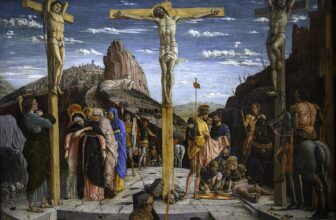
Who is Glafira Rosales
Glafira Rosales, a Long Island art dealer, became infamous for her central role in one of the most significant art frauds in history, the Knoedler Gallery scandal. Between 1994 and 2009, Rosales supplied approximately 60 forged artworks to prominent New York galleries, including the esteemed Knoedler & Co., leading to financial losses exceeding $80 million for collectors and institutions. U.S. Department of Justice
Background and Modus Operandi
Rosales presented herself as a reputable art dealer with access to an exclusive collection of previously unknown masterpieces by renowned artists such as Jackson Pollock, Mark Rothko, and Robert Motherwell. She claimed these works originated from a secretive collector, often referred to as “Mr. X,” who wished to remain anonymous. This narrative intrigued buyers and facilitated the sale of these artworks through prestigious galleries.
The forgeries were the creations of Pei Shen Qian, a Chinese artist residing in Queens, New York. Qian possessed a remarkable ability to emulate the styles of various Abstract Expressionist artists. To enhance the authenticity of the pieces, he employed techniques such as using tea bags and dirt to artificially age the paintings. Rosales acquired these forgeries at minimal cost and sold them to galleries for substantial sums, capitalizing on the art market’s appetite for rare and significant works.
The Knoedler Gallery’s Involvement
Knoedler & Co., established in 1846, was one of New York’s oldest and most respected art galleries. Under the direction of its president, Ann Freedman, the gallery sold numerous works supplied by Rosales. These pieces were marketed as newly discovered masterpieces, attracting high profile collectors and commanding prices in the millions.
In 2009, suspicions arose regarding the authenticity of a purported Jackson Pollock painting sold by Knoedler. Subsequent investigations revealed that the gallery had sold multiple forged artworks over several years. Facing mounting legal challenges and reputational damage, Knoedler & Co. abruptly closed its doors in 2011, citing business reasons unrelated to the emerging scandal.
Legal Proceedings and Sentencing
In 2013, Glafira Rosales was arrested and charged with multiple offenses, including wire fraud, money laundering, and tax evasion. She pled guilty to these charges, admitting her role in the fraudulent scheme. During court proceedings, Rosales alleged that she had been coerced into the scheme by her partner, José Carlos Bergantiños Díaz, who she claimed was abusive and threatening. Bergantiños Díaz and his brother were later arrested in Spain in connection with the fraud but faced complex extradition proceedings. The Art Newspaper
In 2017, Rosales was sentenced to time served (82 days in prison), nine months of house arrest, and three years of supervised release. Additionally, she was ordered to pay $81 million in restitution to the victims of the fraud. The relatively lenient sentence was influenced by her cooperation with authorities and the abuse she reportedly suffered. Artnet News
Impact on the Art World
The Rosales forgery scandal had profound implications for the art market, highlighting vulnerabilities in the authentication processes of even the most prestigious institutions. It underscored the necessity for rigorous provenance research and due diligence in art transactions. The scandal also prompted discussions about the responsibilities of art dealers and galleries in verifying the authenticity of the works they sell.
Glafira Rosales’s involvement in the Knoedler Gallery forgery scandal serves as a cautionary tale about the complexities and potential pitfalls of the art market. Her actions, driven by a combination of personal circumstances and the lure of financial gain, led to significant financial and reputational damage across the art world. The scandal continues to be a subject of study and discussion, emphasizing the importance of integrity and transparency in art dealings.
For those interested in a more in-depth exploration of the scandal, the podcast “Art Fraud” delves into the intricacies of the case, including an episode focused on Glafira Rosales. Apple Podcasts




